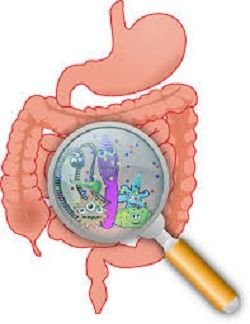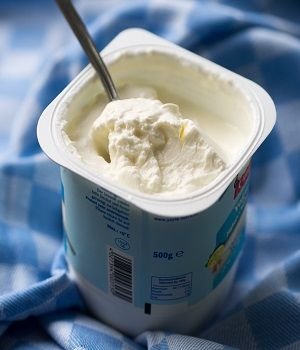
Source
Goodday dear readers, Hope you are doing great, today we will be discussing about Probiotics and the possible side effects of taking it.
Let begin with what the origin and meaning of the word Probiotic.
What is Probiotic
The word Probiotic is a combination of the Greek words pro, which means "promoting," and biotic, meaning "life."
Elie in the 20th century had observed that rural dwellers in Bulgaria lived to old ages despite living in poverty and hard and extremely nasty environmental climate. He, therefore, put up a hypothesis that health could be enhanced by the manipulating of the intestinal microbiome with beneficial (harmless) bacteria found in sour milk. Elie Metchnikoff has been therefore nicknamed the "father of probiotics," Research has continued to support Elie’s findings and some authors even suggests more benefits.
Probiotics are live microorganisms (bacteria and yeast) that may be able to help prevent infection and treat some diseases. Probiotics can be supplied with beverages, foods and dietary supplements that contain either bacteria or yeast and in some cases both.
Apart from getting Probiotics from food or dietary supplements, these live organisms can also be transferred from mother to child during a delivery through the birth canal, a newborn can pick up some bacteria such as Lactobacillus, Bacteroides, Bifidobacterium, Lactobacillus, and Escherichia coli from his/her mother.

Probiotics have roles in epithelial cell reproduction and differentiation, and also in maintaining a balance of the immune system. The composition of the human body normally contains the beneficial or harmful bacteria although actors such as genetics, the Age, and diet can influence the composition of the human microbiome, maintaining a balance between these bacteria is important to attain optimal health, the inbalance of microbiome (dysbiosis), might lead to diseases. Probiotics are able to regenerate the human digestive system with beneficial microbes that will neutralize the harmful ones.
Most live microorganisms are included in food products through fermentation process (a decomposition process of organic substances that convert carbohydrates to alcohols or organic acids and is induced by microorganisms or enzymes). It helps extend the shelf life of perishable foods.
Factors that could change the balance of our intestinal flora
- Stress
- High fat diets
- Excessive intake of alcohol
- Genetic disorders
- Presence of chlorine and fluoride in drinking water
- Indiscriminate use of antibiotics
- Inadequate food etc
Substances that originate mainly from oligosaccharides (complex starches) such as Inulin and fructo-oligosaccharides (FOS) are called Prebiotics. Prebiotics should not be confused with probiotics, they are not digestible by humans but acts as food for probiotics and the gut microbiome. They can be obtained from and abundant in whole grains, legumes, and fruits. The cooperative association results in a synergistic effect called synbiotics
The Usefulness of Probiotics
Probiotics are useful in the prevention and treatments of infection caused by pathogens or harmful microbes.
- They aid adequate digestion and metabolism of food
- Probiotics are able to ferment food and also breakdown foods substances into smaller products.
- They are able to colonize the human digestive system, compete with the other microorganism in this area and thus maintain a stable and healthy digestive system.
Microorganisms used as Probiotics.
For a microbe to be considered a probiotic it must certify the following condition:
- The microbe must be alive when administered
- It must be documented to have a health benefit
The organisms that have met the above condition include:
Lactobacillus
One of the most important strains existing naturally in milk products is Lactobacillus. The microflora in our digestive system helps to prevent pathogenic microflora from exceeding their number limit, and to perform many other vital activities.

Lactobacilli are naturally found in the urinary, digestive, and genital systems. Species of Lactobacilli are found in fermented food and dietary supplements includes Lactobacillus acidophilus, Lactobacillus bulgaricus, Lactobacillus casei, Lactobacillus johnsonii, Lactobacillus gasseri etc.
Lactobacillus found in foods and supplement has been used for treating and preventing a wide variety of diseases and conditions including bacterial vaginosis, urinary tract infection, irritable bowel syndrome, diarrhea, lactose intolerance, skin disorders (fever blisters, eczema, and acne).
Bifidobacteria
Bifidobacteria found majorly in the colon and normally lives in the intestine and appear in the intestinal tract of breastfed neonates or infants within days of birth. Bifidobacteria have been indicated in body glucose tolerance and in the improvement blood lipids and glucose tolerance. Some species of bifidobacteria used as probiotics include the Bifidobacterium infantis, Bifidobacterium bifidum, Bifidobacterium lactis, Bifidobacterium pseudolongum etc.
According to the research by Dai et al., (2013) it has shown that Bifidobacteria can effectively alleviate Irritable Bowel Syndrome (IBS) and significantly improve IBS symptoms like pain/discomfort, distension/bloating, urgency, and digestive disorders.
Saccharomyces boulardii
This is the only yeast probiotic and some studies have shown that Saccharomyces boulardii is most commonly used for intercepting, preventing and treating diarrhea, diarrhea associated with tube feedings and traveler’s diarrhea. It is also used to prevent and treat diarrhea associated with antibiotics use. It has also been reported reduce side effects of treatment for H. Pylori and to prevent the reoccurrence of Clostridium difficle gastrointestinal infection in individuals have been exposed to antibiotic therapy or long-term hospitalization.
Bacillus coagulans
A bacterium that produces lactic acid and is often mistakenly classified as lactic acid bacteria but Bacillus coagulans forms reproductive structures called spores unlike lactic acid bacteria such as lactobacillus or bifidobacteria. These spores are an important factor that helps in differentiating Bacillus coagulans from other lactic acid bacteria.
Type of Food Product That Contains Probiotics.
Yogurt:

Yogurt is a fermented milk product that contains Streptococcus thermophilus, Lactobacillus bulgaricus, L. acidophilus, and Bifidobacterium bifidum. It has been identified that Research yogurt have positive effects on the gut microbiome and this effect has been identified to be associated with a reduced risk for gastrointestinal disease and improvement of lactose intolerance (especially among children), type 2 diabetes, cardiovascular disease, allergies and respiratory diseases, as well as improved dental and bone health.
Kefir:
This could be the most idea probiotic dairy product because it contains both bacteria and yeast working together to provide the numerous health benefits. Kefir defined as a fermented milk beverage, that is produced by the action of lactic acid bacteria (LAB) (lactobacilli, lactococci, leuconostocs), yeasts, and acetic acid bacteria (acetobacteria) on milk. It has been reported by Kiichiro Teruya (2002) that Fermented milk, Kefram-Kefir enhances glucose uptake into insulin-responsive muscle cells.
Kimchi:

This fermented vegetable and can include any of the following organisms: Leuconostoc mesenteroides and Lactobacillus plantarum, L. lactis, L. mesenteroides, L. plantarum, L. citreum, L. gasicomitatum, L. brevis, L. curvatus, L. sakei, Pediococcus pentosaceus, Weissella Koreensis, and W. Confuse.
It is made from Chinese cabbage (beachu) which is the main ingredient. Other ingredients incudes red pepper powder, garlic, ginger, radish, green onion, and fermented seafood (jeotgal).
Research by Park et al., in 2013 has identified the Health benefit of kimchi to include cholesterol reduction, fibrolytic effect, colorectal health promotion, antioxidative and antiaging properties, anticancer, antiobesity, anticonstipation, probiotic properties, cholesterol reduction, fibrolytic effect, brain health promotion, immune promotion, and skin health promotion
Are there side effects from the use of probiotics?
The side effects of Probiotics, if they occur, are usually mild and digestive (such as bloating or gas) especially in people consuming synbiotics (a supplement that contains both probiotic microorganisms and prebiotic fibers) but in people who are generally healthy, probiotics have a good safety record. However serious effects have been seen in some people especially those who are or who have had surgery or immunocompromised individuals.
Some Probiotic supplements contain food allergens such as dairy, egg, Milk sugar, lactose or soy, therefore People the labels of probiotic supplements should be read carefully by people with intolerances to this products.
When taking medications for ulcerative colitis, the use of Probiotics should be avoided as they may interfere with the drug's metabolism especially when taking drugs like sulfasalazine.
Precautions should be taken when taking probiotics because it may increase the chance of becoming sick especially in children, the elderly, pregnant women and in generally individual with compromised immunity.
Complementary health product and unproven health products should not be used to replace scientifically proven treatments; It is therefore advised to always visit your doctor when planning to go on Probiotics or any dietary supplement.
Thank you for readimg
Refrence Link
https://link.springer.com/article/10.1023/A%3A1023926407877
https://www.ncbi.nlm.nih.gov/pubmed/24456350
https://www.precisionnutrition.com/all-about-probiotics
https://www.medicinenet.com/probiotics/article.htm
Image credit
https://pixabay.com/en/anatomy-bacteria-bacterium-bowels-160524/
https://www.flickr.com/photos/ajc1/8344600413
https://pixabay.com/en/kimchi-spicy-raw-side-dish-korean-2337822/

- Please note that all images used are from free sources.
Being A SteemStem Member
Thanks for this invite, already joined steemstem on discord today.
Its nice been a member of this community.